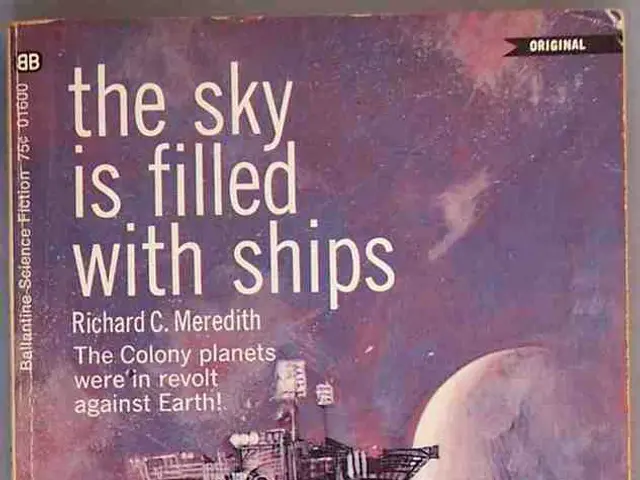Events Showcase and Progress Insights into the Realm of American Jewish Music Research and Scholarship
Unveiling the Rich Tapestry of American Jewish Music
In the heart of Los Angeles, on Wilshire Blvd., a significant chapter in the history of American Jewish music is being unearthed. Graduate student researcher Ray Ace has been delving into the Sinai Temple Archive, compiling a vast collection of works by Max Helfman, some of which are only accessible in this hidden treasure trove.
Max Helfman, a composer who worked at Sinai Temple, has left an indelible mark on American Jewish music. His contributions, however, have yet to receive the recognition they deserve. Ray's research aims to shed light on Helfman's compositions, adding to our understanding of the evolution of American Jewish music.
The story of American Jewish music is a rich and diverse one, shaped by a multitude of influential figures. Among them are Abraham Zevi Idelsohn, Irving Berlin, and Aaron Copland, each leaving a unique and lasting impact on Jewish and American music.
Abraham Zevi Idelsohn, a pioneering Jewish cantor and ethnomusicologist born in Latvia, is credited with founding the modern study of Jewish music. His groundbreaking work, Thesaurus of Hebrew Oriental Melodies, documented diverse Jewish musical traditions from across the globe, revealing their underlying unity and connecting Jewish chants to early Christian traditions.
Irving Berlin, born Israel Beilin in Russia, was a prolific American songwriter who bridged Jewish musical heritage with mainstream American popular music. Over a 60-year career, Berlin wrote approximately 1,500 songs, including iconic American standards such as "God Bless America," "White Christmas," and "Puttin' on the Ritz."
Aaron Copland, an American-born composer of Jewish descent, contributed to American music by developing a distinctive style that integrated American themes with modernist influences. Though not exclusively focused on Jewish music, Copland is described as a "direct heir to the Jewish radical tradition," blending his heritage with a broader American artistic identity.
In more contemporary times, Cantor Jonathan Comisar and Cantor Benjie Ellen Schiller, faculty composers at Hebrew Union College, are nurturing new generations in Jewish musical expression. They merge traditional Jewish sacred music with contemporary themes and interfaith dialogue, continuing to evolve the tradition with new artistic and social perspectives.
Meanwhile, Kacie Morgan, another graduate student researcher, has been analysing the influencers and interrelationships of composers across generations in American Jewish Music. Her research has identified several hundred people, holidays, time stamps, and sound effects as the most mentioned entities in the oral histories, providing an important body of information that will support future research in this field.
The Lowell Milken Fund for American Jewish Music, a key supporter of this research, co-sponsored The Second International Symposium of the Arts of Performance and Jewishness in Buenos Aires, Argentina. The symposium aimed to grow the academic study of the arts from an interdisciplinary perspective and to disseminate knowledge about Jewish culture to the general public.
Ray's work was supported by a University of California Humanities Research Initiative Grant, and he spent weeks analyzing handwriting, documenting, and photographing sheet music composed or arranged by Max Helfman. His findings will contribute to a deeper understanding of Helfman's place in the history of American Jewish music.
A concert featuring Max Helfman's music is scheduled to take place at Sinai Temple in the spring of 2019. The concert, presented by the Milken Fund, will offer many pieces their first public performance, providing a rare opportunity to experience Helfman's compositions firsthand.
For those interested in learning more about the Lowell Milken Fund for American Jewish Music, more information can be found on their website. The fund continues to support research and events that celebrate and preserve the rich heritage of American Jewish music.
Max Helfman's compositions, unearthed from the Sinai Temple Archive, contribute to the diverse tapestry of American Jewish music by bridging the gap between entertainment and music.
Exploring Helfman's works, as Ray Ace is doing, adds a new layer to the long-standing evolution of American Jewish music, enriched by multifaceted influences and the blending of traditional and contemporary styles.







